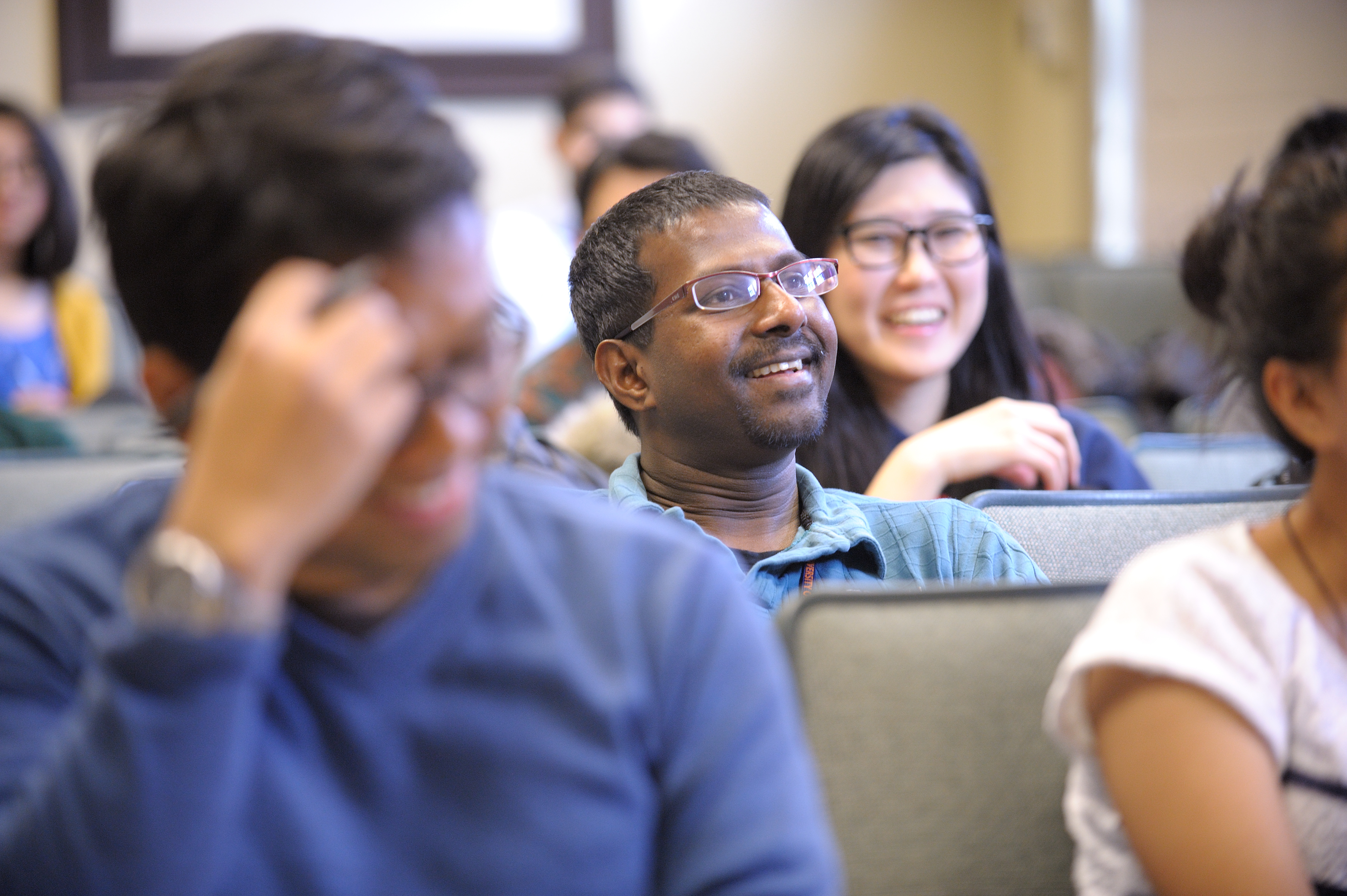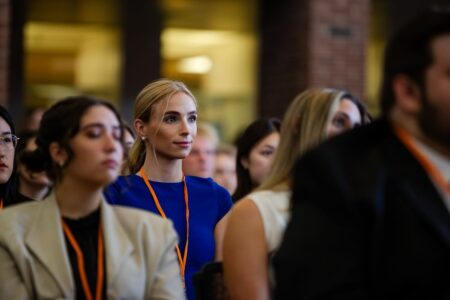Since 1984, the Master of Science: Policy Economics (MSPE) at the University of Illinois Urbana-Champaign has prepared a diverse pool of students for a wide range of careers. As one of the top 10 professional econ master’s degree programmes in the US, it has produced over 2,100 alumni from 105 countries. Whether they complete the STEM-designated programme in one, one and a half, or two years, all graduates go on to forge fulfilling careers in public, private, and non-governmental sectors.
Ready to join their ranks? Let’s look at how three students from different backgrounds benefited from the MSPE to turn their unique aspirations into reality.

Merve Gunes used the MSPE as a means to advance her career in one of Türkiye’s public agencies. Source: University of Illinois Urbana-Champaign
A ‘great enhancement’ for a career in government or business
Merve Gunes was working in Türkiye’s public sector for several years, when she decided to add another qualification to her bachelor’s degree in international relations. She had realised that, despite advancements in technology, economics still plays a key role in understanding how people make decisions — whether they are individuals, businesses, or governments.
Seeking to expand her knowledge of economic theory and how to apply it to real-world problems, she signed up for the MSPE.
“This programme gives me the tools to better analyse and understand the behaviour of different economic agents, which I believe is important for solving complex challenges in both the public and private sectors,” she says. “I was particularly attracted to the STEM-focused approach, which emphasises data-driven decision-making, economic modelling, and impact assessment.”
Spanning three semesters, the MSPE starts with building a solid foundation through heavy theoretical coursework. After that, students choose to complete six elective courses, with at least two listed under a particular specialisation. The programme’s areas of specialisation are Advanced Econometrics, Development Economics, Environment & Natural Resources, Financial Economics, Industrial Organisation, International Economics, Labour Economics, Monetary Economics, and Public & Urban Economics.
All of this builds a strong background in econometric methods for doing empirical work with large administrative data sets and expert know-how in applied microeconomics and applied macroeconomics. It’s a powerful combination – one that has “greatly enhanced” Gunes’s ability to handle complex data sets and conduct independent research directly applicable to her role at TMSF, a public legal entity concerned with matters of fund management and insurance in the Turkish banking system.
Another edge Gunes has today is the rare behind-the-scenes look at how major financial institutions and policy-making bodies operate. Paid for by the MSPE, these fields trips are a key feature of the programme, taking students to institutions like the Federal Reserve, IMF, Moody’s, and the World Bank.

Soon after graduating with a Bachelor of Technology in India, Shubha Jain joined the MSPE to prepare for a career in the US. Source: University of Illinois Urbana-Champaign
Enhacing your prospects of pursuing the most challenging careers in government or business
For Shubha Jain, the MSPE was the obvious option after she graduated with a Bachelor of Technology (B.Tech.), Electrical and Electronics Engineering, from Delhi College of Engineering in 2014. Right after that, she joined the MSPE to follow her interest in quantitative economics with a focus on public policy.
“Electives like Industrial Organisation and International Economics helped me hone my areas of interest. Moreover, the program’s fields trips, international community, and flexibility to complete in shorter time frames set it apart,” she says.
Jain described the programme as an “excellent foundation” for understanding economic theory, sharpening analytical and problem-solving skills, and understanding the US work culture by utilising various university resources.
Leveraging this and everything else she gained from the MSPE, Jain hit the ground running right after graduating as a summer intern at Deloitte before being promoted to a Corporate Treasury Advisory role there. In that role, she had to understand what macro-economic factors play into a company’s cash and liquidity planning.
“During my time there when COVID-19 happened, we had to react swiftly to Fed’s measures and help large, medium, and small corporation plan around stalled operations,” she says. “Understanding of the macroeconomic factors played a huge role in my ability to craft our practice’s response at that time.”
Today, Jain is a senior product manager at Amazon Ads, overseeing its billing platform. She takes care of the tracking, invoicing, and collecting payment on each dollar of the US$45 billion revenue business. On most days, she works closely with engineering, design, tax, accounting, legal, and PR teams to come up with new product ideas in the invoicing, payments, and promotions space.

“I often reflect on the trust that mentors like Professor Stephen Parente placed in me — it has been a great source of motivation,” says MSPE graduate Eric Zou. Source: University of Illinois Urbana-Champaign
From MSPE to good PhD programmes
Every year, the programme graduates between 5 to 10 students who go on to PhD programmes. Qualified MSPE students also have the option to complete core PhD courses in their studies and then transfer into the Economics Department’s PhD programme at the end of their second year through the MSPE PhD track.
Eric Zou was drawn to the latter, an option few other schools offer. “The programme’s design was a valuable edge: if I met the requirements, I could proceed directly into the PhD,” Zou says. “If not, I would still have a solid set of PhD-level economics courses on my transcript along with recommendation letters from professors that would strengthen my application profile.”
Working with a wide range of professors, each with unique styles of thinking, teaching, and research interests, was at first an intellectual shock. But Zou found that it jumpstarted his engagement with the field and gave him the exposure to land a role in academia.
He is currently a research fellow at the National Bureau of Economic Research and the Sanford R. Robertson Assistant Professor in Business Administration at the University of Michigan, the third ranked public university in the nation. His work appears in many of the top economic journals, and he is considered as one of the bright rising stars working in the fields of environmental economics and health economics.
Apply to the University of Illinois Urbana-Champaign now.
Follow the Department of Economics at the University of Illinois Urbana-Champaign on LinkedIn and Facebook.













